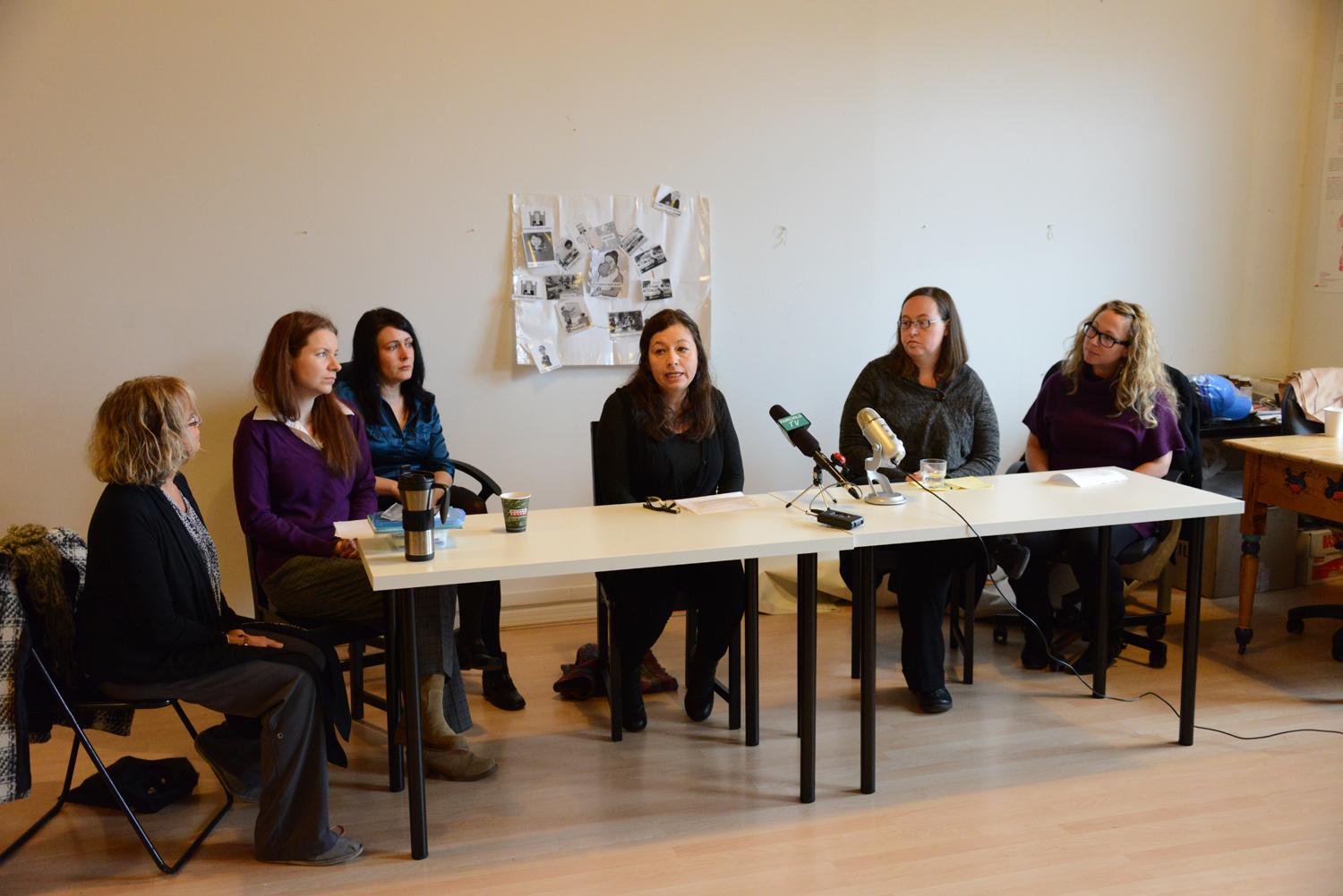This morning, we joined forces with Atira Women’s Resource Society, Battered Women’s Support Services, The YWCA of Metro Vancouver, Kiwassa Neighbourhood House and Women Against Violence Against Women Rape Crisis Centre to launch our latest report: Imagining Courts that Work for Women Survivors of Violence.
The report, which recommends that the provincial government work in partnership with women-serving organizations to develop specialized courts to address gendered violence, comes in the midst of the BC Justice Reform Initiative and less than two months after the new Provincial Office of Domestic Violence released its preliminary action plan. We are pleased to be launching this report at this critical juncture on the path to developing an effective system response to violence against women.
Get Updates
Using the law as a catalyst for positive social change, Pivot Legal Society works to improve the lives of marginalized communities.
This idea for this report was conceived during an informal conversation among anti-violence workers about whether specialized courts could better meet the needs of the women we work with. Our research included an online survey for service providers  across the province and open-ended interviews with women who have bee through the court system as a result of male violence.
across the province and open-ended interviews with women who have bee through the court system as a result of male violence.
Four major areas for reform emerged from the research:
- Police responses to reports of violence.
- The court experience and continued insecurity of women during court proceedings.
- The role of court professionals (lawyers, the judiciary and victim services workers)
- Court orders, sentencing and enforcement.
In the report, we address each of these areas in three ways. First, we explore the concerns that participants reported, as well as their analysis of what is working well and what could be improved. None of the concerns raised in our research were unique to British Columbia, so we then looked at a range of program and practice solutions from other jurisdictions that have been developed to address the issues raised by the data. Finally, we provide a series of recommendations based on both the data and the alternative models.
The report makes the case that BC is falling behind other jurisdictions when it comes to innovation in the area of violence against women. With the exception of a small pilot program in Duncan, British Columbia is one of the few jurisdictions in Canada without specialized courts mandated to hear cases involving violence against women. Because BC is relatively late in developing specialized courts, we believe there is a unique opportunity to develop a program with the benefit of two decades of lessons, research and reflections from other jurisdictions. We take the position that by bringing together elements from domestic violence courts in a number of Canadian jurisdictions and relying on the expertise of women who have been through the justice system and the women-serving agencies that work with them, there is an opportunity to develop courts that can better support women’s safety and autonomy while achieving the goal of smoother administration of justice.
The final section of the report looks at how other jurisdictions have gone from recognition of a problem to implementation of new programs or specialized courts. Based on our research on other jurisdictions, we point to four essential factors in developing courts that will better meet the needs of women who have experienced violence in BC:
- Political will in the form of strong commitments and resource allocation
- Evidence-based program development
- Judicial leadership
- Collaborative multi-stakeholder engagement with a focus on partnerships with women-serving agencies.
There have already been calls for specialized courts in British Columbia, including from the Office of the Representative for Children and Youth and, more recently, from Geoffrey Cowper who suggests that BC look at specialized courts in his report commissioned by the Minister of Justice as part of the BC Justice Reform Initiative. Our research highlights the diversity of specialized court models and demonstrates that the most successful specialized courts rely heavily on partnerships with women-serving agencies that have a deep understanding of the dynamics of violence against women.
We have sent copies of this report to the Minister of Justice and to the new Provincial Domestic Violence Office along with an invitation to meet with us to talk about moving forward. We look forward to collaborating and are calling on government to make the most of the Justice Reform Initiative by developing partnerships with women’s organizations and community-based agencies that have a wealth of expertise to contribute to project of ‘modernizing’ BC's justice system.